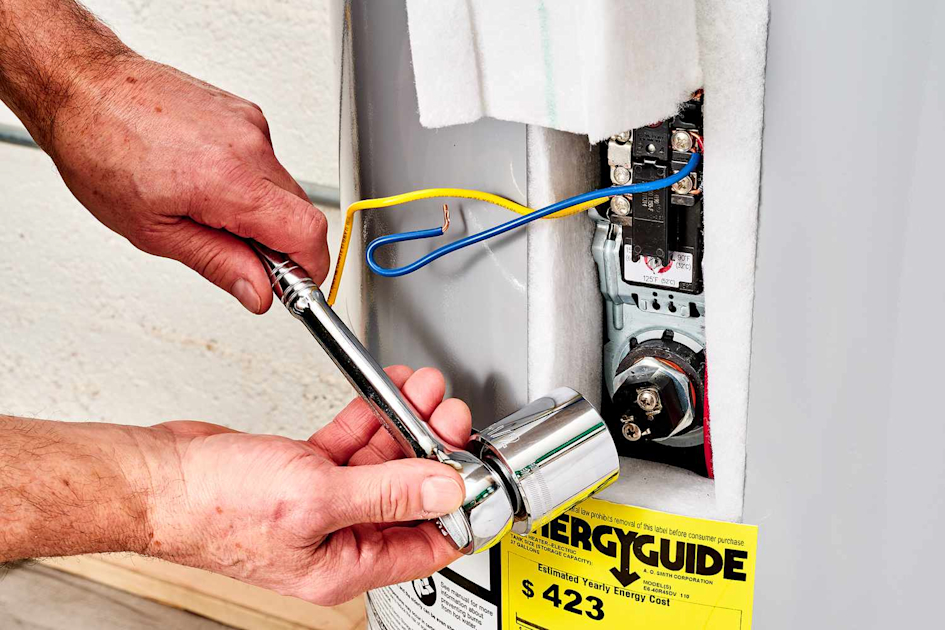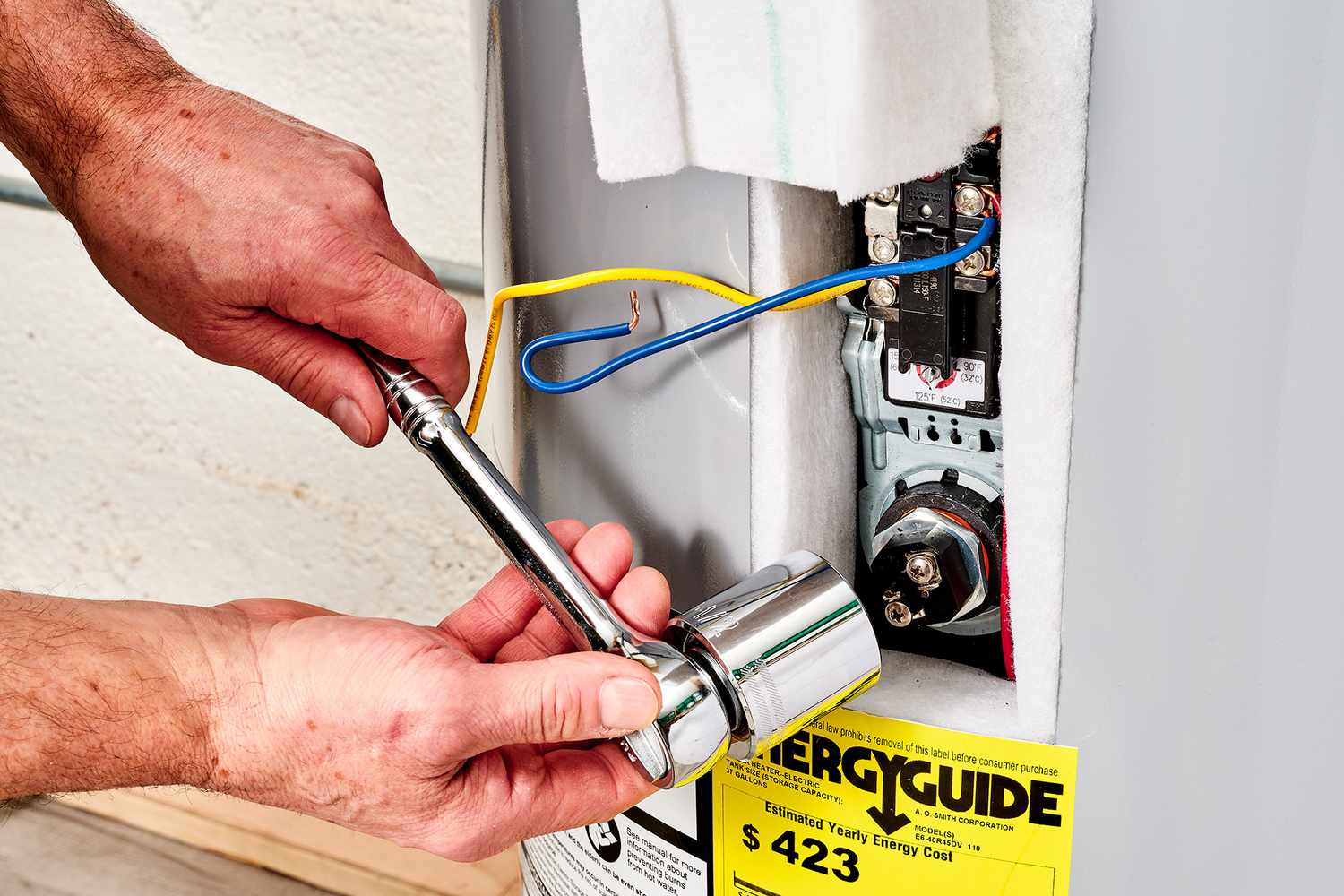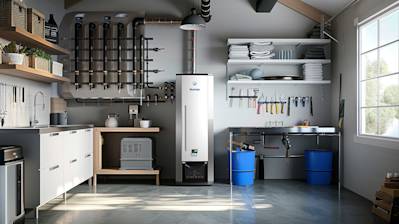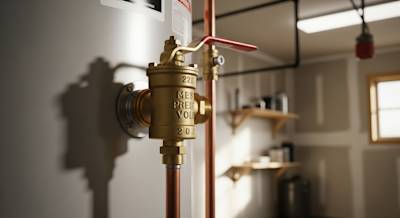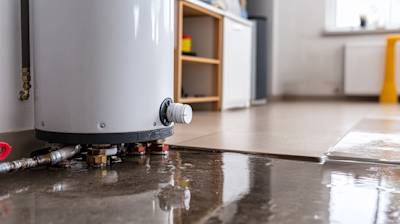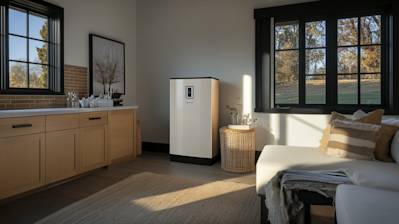Water heaters are essential home appliances that provide you with warm water for daily use. An essential part of any water heater unit is the water heater element, which is responsible for heating the water. This guide dives deep into what a water heater element is, how it functions, the different types available in the market, and how to choose the right one for your needs.
Understanding the Water Heater Element
The water heater element is a crucial part of any water heating system. It is typically made of metal and is designed to heat up when electricity is passed through it. This heat is then transferred to the water that circulates around it, providing you with hot water in your taps and shower.
Different Types of Water Heater Elements
When you start looking for a water heater element, you will find that there are different types of elements available, each with its unique aspects. Here's a look at the most common types:
-
Incoloy Sheathed Elements: These water heater elements are highly durable and can withstand a significant amount of heat and pressure. They come with a protective outer layer to prevent electrochemical reactions.
-
Copper Sheathed Elements: Copper sheathed elements are known for their superior heat conductivity, making them highly efficient. However, they may corrode over time, especially in areas with hard water.
-
Nickel-Based Alloy Sheathed Elements: These water heater elements are popular choices due to their resistance to scaling and high corrosion resistance. They are ideal for hard water conditions.
Choosing the Right Water Heater Element
Choosing the right water heater element requires consideration of numerous factors such as heat output, durability, resistance to corrosion, cost, etc. Here is what you need to know:
Heat Output
The first thing to consider when choosing a water heater element is the heat output. The heat output refers to the amount of heat the element can produce within a specific period. High wattage elements heat water quickly but consume more energy, while low wattage ones are energy-saving but heat water slowly.
Lifespan and Durability
When investing in a water heater element, another factor to consider is its lifespan and durability. Incoloy sheathed elements, for example, are durable and can withstand a significant amount of heat and pressure.
Resistance to Corrosion
The water heater element's resistance to corrosion is another important factor to consider. Hard water can cause water heater elements to corrode over time, reducing their efficiency.
Installing a Water Heater Element
Installing a water heater element is a process that requires certain technical skills. It's always recommended to hire a professional for this task. However, if you opt to do it yourself, always remember to switch off the power supply and drain the water heater first to avoid any accidents.
Maintaining Your Water Heater Element
Regular maintenance of your water heater element is crucial for its longevity and optimal performance. This involves cleaning the element regularly to prevent scale build-up and replacing it periodically if you notice a decline in water heating efficiency.
Understanding the water heater element is essential for every homeowner. It helps make informed decisions when needing a replacement, ensuring you get the most durable, energy-efficient, and cost-effective solution.
Frequently Asked Questions about Water Heater Elements
If you have any queries about water heater elements, our following FAQ section should provide some helpful responses!
Why does a Water Heater Element burn out?
A water heater element burns out due to different reasons. The most common one is sediment build-up. The hot water that leaves the tank is naturally replaced with cold water. This continuous heating process results in a sediment build-up that eventually causes the heater element to fail. Other causes include overloading, aging, and faulty wiring.
How can I check the Water Heater Element?
Checking the water heater element can be done by a multimeter tool. Turn off the breaker for the water heater, then remove the cover plate and insulation. Afterwards, test for the presence of voltage. The meter should read zero. Once you determine there's no electricity passing through, you can test the element for continuity. A good element will have a reading between 5 and 25 ohms. An element that does not have continuity is defective and should be replaced.
When should I replace the Water Heater Element?
You should consider replacing your water heater element if there's a significant decline in the performance of your water heater, if your water isn't heating at all, if there's rust on the elements or if your multimeter testing indicates that the element is faulty.
Can I replace the Water Heater Element by myself?
Yes, you can indeed replace the water heater element by yourself, but only if you are comfortable working with electricity and plumbing. If you aren't, hiring a professional is highly recommended.
What is the cost to replace a Water Heater Element?
The cost to replace a water heater element may vary depending on several factors, such as the type of the element, the geographic location, and the professional hired for the task. However, generally, the cost ranges from $200-$300 including labor charges.
How long will my Water Heater Element last?
On average, a water heater element should last for about 6-10 years. However, this depends on the water condition, the material of the element, and the maintenance program followed. Regular maintenance and inspection can significantly increase the lifespan of your water heater element.
What are the types of Water Heater Elements?
The two basic types of water heater elements are the metallic and the non-metallic elements. Each has its own advantages. The metallic versions are more common and more affordable, but on the other hand, the non-metallic ones are generally more durable and resistant to burnout.
Can I run my Water Heater without an Element?
Technically, yes, but it wouldn't effectively heat your water. The element is a critical part of the water heater unit. Without a functioning element, the water heater cannot heat water adequately which is its primary function.
Why is my Water Heater Element leaking?
The most common reason for a leaking element is usually a loose element. Over time, it can get loose due to contraction and expansion caused by heating water. In this case, tightening can solve the problem. If tightening does not fix the leak, then it could be a sign that the gasket needs to be replaced, or the tank itself may be corroded and need replacing. In all situations, it is best to hire a professional to evaluate the problem and to prevent the risks associated with leaking water heaters.
Pros and Cons of Water Heater Elements
Pros of Water Heater Elements
Energy Efficiency
One of the top advantages of water heater elements is their higher energy efficiency. Electric water heaters have energy efficiency ratings around 90-98%, which is significantly higher than gas water heaters.
- Less Energy Loss: Since these models do not require a flue, there is no heat escape, resulting in less energy loss and improved efficiency.
- Effective Insulation: Modern water heater elements are designed with superior insulation, which further prevents heat loss, thereby saving energy.
Easy Installation
Compared to other types, water heater elements are easier to install and do not require a complex setup. Further benefits include:
- Less Space Needed: Since an element-based water heater can be smaller and does not require a venting system, it takes up less space.
- Upgrade Simplicity: It's typically simpler and less costly to replace a water heater element than an entire unit.
Excellent Safety Record
Water heaters using electric elements pose fewer safety risks because they don't produce carbon monoxide as a byproduct.
Cons of Water Heater Elements
Higher Operation Cost
Despite their excellent energy efficiency, operation costs for electric water heaters can be high due to the relatively high costs of electricity compared to natural gas.
- Dependence on Electricity Rates: If electricity prices increase, the operation costs of such water heaters also rise.
Slow Heating
Water heater elements often heat water more slowly than gas heaters do. This can lead to longer wait times, especially if the demand for hot water is high.
Vulnerability to Power Outages
Electric water heaters, including those with elements, will not work during a power outage, leaving you without hot water until power is restored.
Water Heater Element Variations
Here are some variations of the water heater elements and how they influence their pros and cons:
Incoloy Sheath Elements
- Pros: These are highly durable and less likely to experience limescale buildup. They are best suited for hard water areas.
- Cons: Despite their durability, these are typically more expensive than other types of water heater elements.
Copper Sheath Elements
- Pros: These types of water heater elements are cheaper and more common in many household water heaters.
- Cons: Copper sheath elements can be more susceptible to limescale buildup, which can drastically reduce their efficiency over time.
Nickel-based Alloy Sheath Elements
- Pros: This type of water heater element offers excellent heat transfer properties. They are often considered mid-range in terms of cost.
- Cons: Nickel-based elements can also be prone to limescale buildup, requiring regular maintenance to maintain their efficiency.
Summary
There's a range of factors that make the water heater element an essential part of any heater. It provides quick and constant heat for household needs. Without it, we would need to find different and perhaps less efficient ways of heating water. For a warm bath or hot water for cleaning, this component is a must, therefore always remember to maintain and replace if necessary.
It's also the ease of replacing a water heater element that makes it relatively simple for homeowners. You don't need to be an expert or incredibly handy; with the right tools and a good guide, you can do it yourself. Not only does this save money, but it empowers individuals to take control over their home appliances.
A water heater element might not be the most glamourous or high-tech piece of equipment in your home, but its reliability and consistent performance are necessary for a comfortable lifestyle. It's the element that ensures we have access to hot water around the clock. So, don't take it for granted, understand its worth, and ensure it is in good working order.
About KYPD Plumbing
Welcome to KYPD Plumbing, your trusted plumbing specialist based in Nicholasville, KY. We're committed to providing professional and reliable plumbing services for every home and business in our community. With years of experience in the industry, our team is skilled in handling a wide range of plumbing needs, from simple repairs to complex installations. We take pride in our dedication to quality work, customer service, and affordable rates. Trust KYPD Plumbing for all your plumbing requirements.
Tags: Water Heater Maintenance, Heating Systems, Home Appliances,

